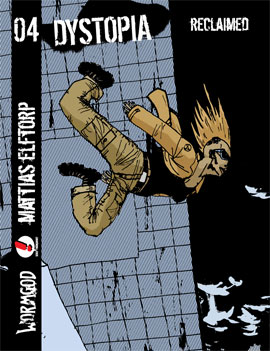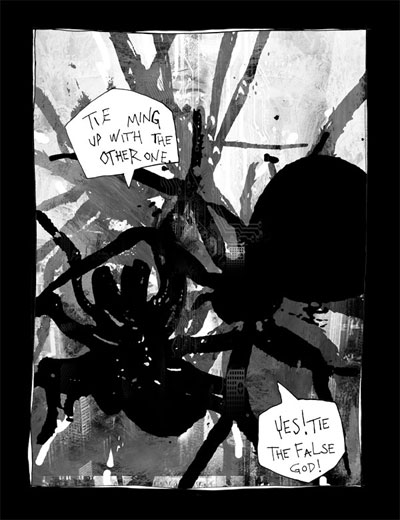Review of Piracy is Liberation at Sekventiellt.se…
It’s a very nice review by Fredrik Strömberg. Took him a while to get around to it, but when he did it, he did a thorough job with it. Some of my favorite passages:
The story behind the making of Mattias Elftorp’s magnum opus Piracy is Liberation is quite unlike anything in Sweden. Elftorp has worked on this project since the beginning of the 21st century, handling the production, publishing and marketing parts mostly by himself (first through C’est Bon now through Wormgod), never making much money out of it (and the little there is, is always put into the next printing) and, most importantly, never compromising with his artistic integrity. And this he has. Lots of it. I know, I have been involved in the making of several of these stories, reading them through, giving advice knowing that most of it will be ignored…
Oh, what the hell. I’ll just publish the whole thing here (high-lighting the important stuff)… Still worth the trip to his blog. Frequently updated and lots of interesting comics-related stuff.
Then there’s Elftorp’s penchant for mixing in several different influences into his genre crossing comics. He himself describes them on the project’s website as: “Political theory, filtered through autobiography, masked as fiction in the form of cyberpunk postapocalypse…” Well, for the postapocalyptic part, The Matrix is a quite obvious influence, with a lot of cyberpunk thrown in for good measure. Then there’s the political part, where already the title indicates the anarchistic tendencies. And the autobiographical parts… Well, the main character is quite obviously based on the artist himself, at least visually. And that the political part of these stories are a real and genuine part of Elftorp can be seen by the fact that he himself has uploaded the first volumes of the series as torrents on The Pirate Bay.
Anyway, I have read most of these comics in various stages, but never all in one go, which I just did. An interesting experience.
![Piracy is Liberation [sticker]](http://www.elftorp.com/freeinformation/piracysticker002.jpg)
The art is expressive, sometimes to the point of being unintelligible. Elftorp has an uncompromising attitude towards his art, where the initial feeling of a drawing is more important than making a certain character look exactly the same, panel after panel. When reading Piracy is Liberation I can never really decide whether this is good or bad, or both. After a while I get really into it though and as with other good auteur comics, the story and the art meshes together to a unity where one could not exist without the other.
The story line is a bit complicated, but never for the sake of being complicated. Sometimes it is very straightforward action, sometimes it messes with the mind of the reader and jumps backwards and forwards in time, playing with the whole cyberpunk theme of being able to upload your consciousness to the net. As a voracious comics reader I of course like the part in volume four, where Elftorp plays with the form of comics and mixes metahumor with cyberpunk and lets the characters actually travel across the comics pages, aware of being part of a comics and able to walk backwards and forwards in time – echoing the creation process of the comic in itself.
Very shortly put, the story in Piracy is Liberation takes place in a post-apocalyptic world which resembles ours in many ways, but where the whole world is made up of a city where the population is kept in a state of subdued subordination through indoctrination mainly via TV (and yes, V for Vendetta does spring to mind, as does Alan Moore’s own inspiration, 1984 by George Orwell, of course). Fighting against the corrupt corporate system is a small group of pirates using the internet to access iformation, attacking the authority, orgnanising rebellion. It’s all on one level a political metafor for the lives we live today, but never to the point of killing the story, which is engaging, sometimes fast paced and often very clever, with the main characters having to copy themselves into reality due to being locked up in a virtual prison, and the ramifications this entails when there are several version of them walking around. Here Elftorp actually does several things I haven’t read or seen before, which is inpressive as the whole post-apocalyptic/cyberpunk genre has been flogged to death many times over, as far as I’m concerned.
But it’s the genuine feeling of the political convictions pulsating thorugh Piracy is Liberation that keeps my interest going and that is what will make me keep reading in the future. Knowing that Elftorp has this series planned to at least 20 volumes I’d be surprised if there isn’t a film made somewhere along the way. I just hope the whole idea of Piracy is Liberation won’t be lost in a Hollywood production (which in itself is the negation of the message of the story). Anyway, until then, do read this strange combination of action and political philosophy and make up your own mind. That’s the main message Elftorp is trying to convey.
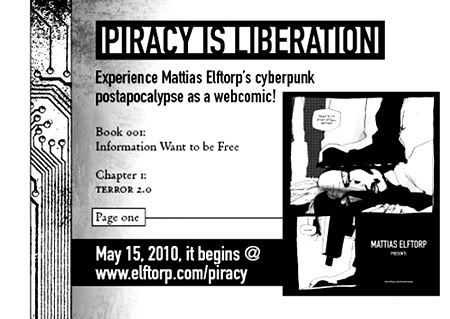



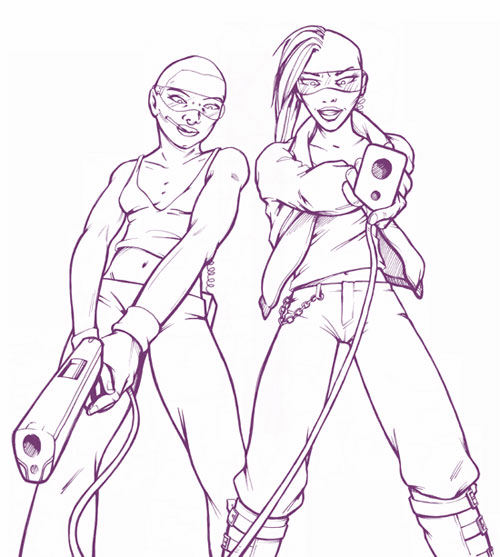

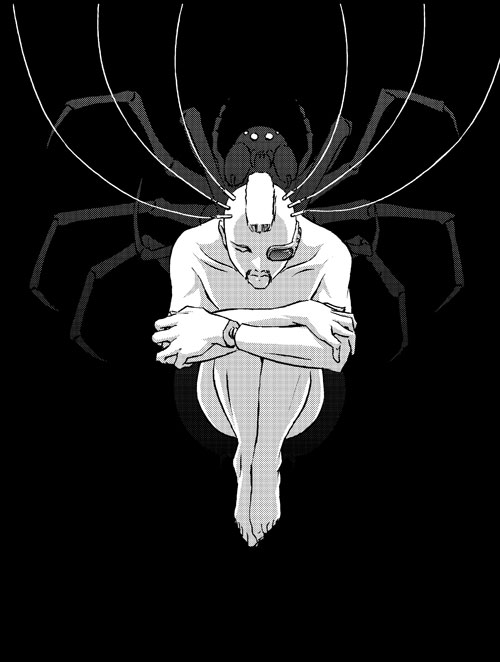
![Piracy is Liberation [sticker]](http://www.elftorp.com/freeinformation/piracysticker002.jpg)
